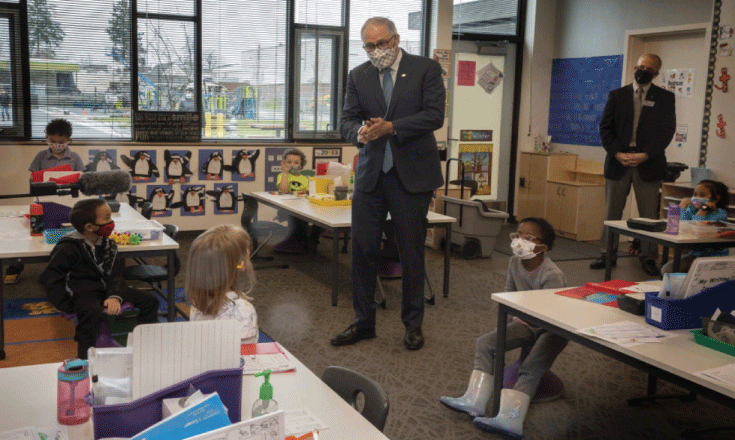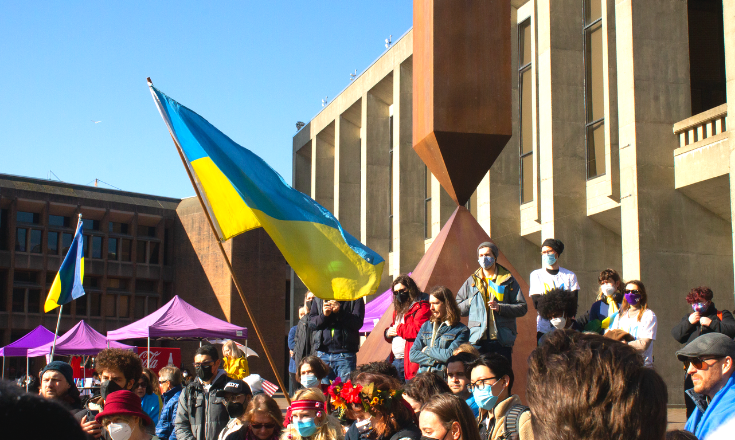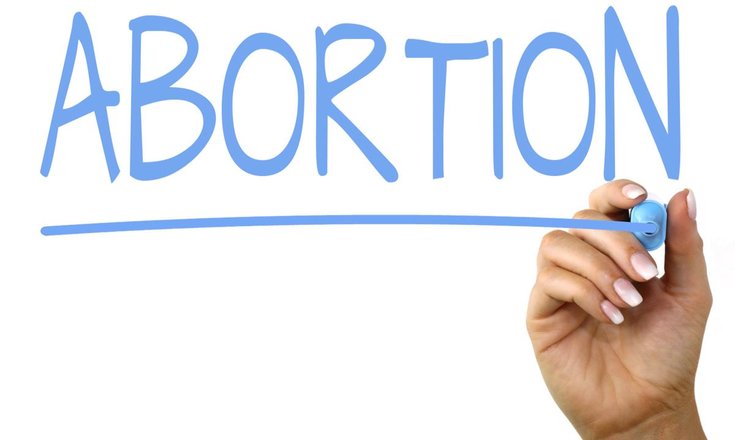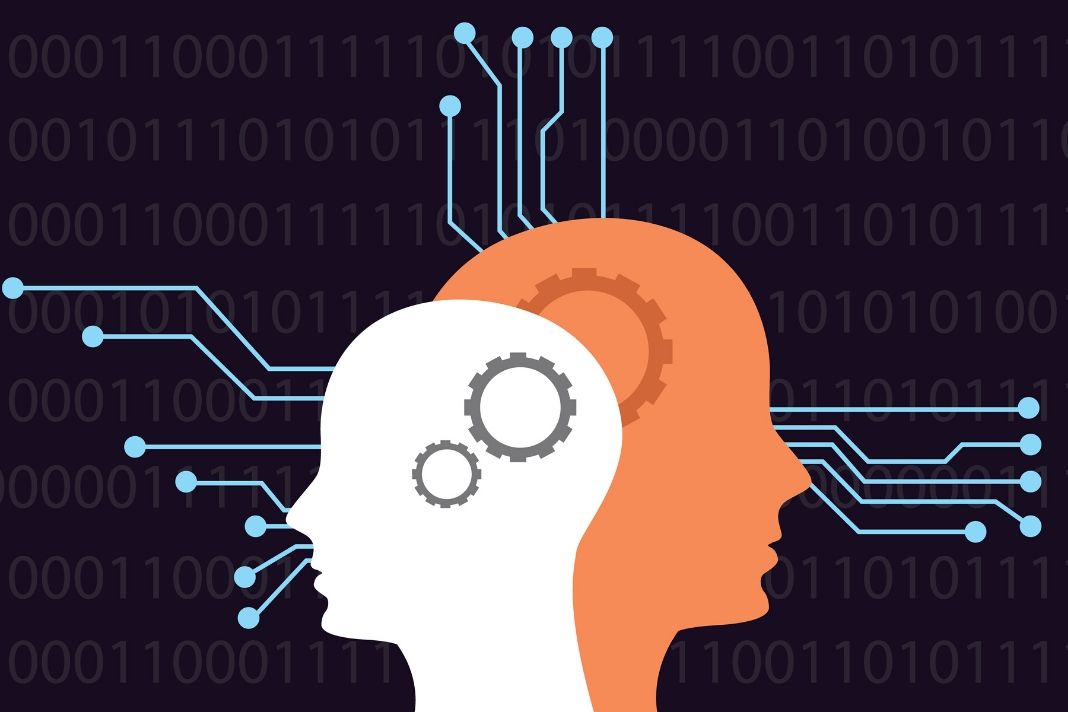In-person learning concerns loom large for Seattle Public Schools
On Feb. 19, Governor Jay Inslee signed House Bill 1368, which appropriates $2.2 billion in federal funding allocation to states in response to the ongoing COVID emergency. Out of this $2.2 billion, $714 million supports assistance for K-12 schools. Having choices for children’s educational avenues solidifies a stronger future, and this federal funding is necessary for its creation. However, does this include COVID-19 vaccines, personal protective equipment (PPE) for daily use, and protocol for faculty, staff, and students who may contract COVID-19 while attending in-person classes?
On Dec. 18, 2020, Seattle Times staff reporter Dahlia Bazzaz posted: “By March 1, Seattle Public Schools [SPS] will bring preschoolers, kindergartners, first graders and additional students with disabilities back to the classroom for in-person learning, the Seattle School Board decided unanimously Thursday evening.” Updated this Feb., she reported, “For the week of Feb. 8, the most recent date for which data is available statewide, SPS reported teaching 144 students in person.” Communities of parents have flooded social media and press emails requesting answers from School District Board Members, who are just as exhausted as the parents. Meanwhile, students as young as 12 scramble to fulfill instructions and supply lists essential to succeed in their education.
Students across the country face issues of educational inadequacy, social adversity, and mental & physical wellness. Students echo the same outcry for tutoring and counseling, from the dysfunctional grading policies to their very own sleep deprivation. For some, Virtual Learning is ideal due to the flexibility it affords. However, for others, in-person education is necessary. These students and their parents are apprehensive because grades are dropping at accelerated rates. Every perspective of in-person learning has a critical consequence on children’s development. Students reported motivation, refreshment, even positive influence upon returning to in-person education. Faculty even reported an observant atmosphere from the students.
With teachers’ support and understanding, some students have been able to survive reasonably well during quarantined learning. Nevertheless, recent surveys expose students expressing overwhelming anxiety about homework requirements after communication errors during class due to poor WiFi connections. In consequence, many favor other countries’ rehabilitation methods, like France. Here in the US, after just two months of no educational structure, studies have shown that students remembered less of their studies or learned nothing at all during the extended lockdown.
As for students with established, reliable equipment and internet service, their focus on class is more troublesome at home than ever with the storm brewing between parents and school administrations, current financial crises, etc. A vicious cycle of finger pointing between teachers’ unions & the education administration creates a wall of protests, and the time spent distracts from the ultimate goal: children’s education quality.
In defense, communities are turning to advocates who harbor mutual disapproval for district leadership. On Twitter, parents responded immediately to Seattle Times articles: “SPS has the most incompetent district leadership in the state. Highly paid people who failed up and out of schools when they couldn’t take care of staff, students and families. SPS has no plan and no skills. They’ll end up copying neighboring districts like they’ve done so far” is the kindest comment seen so far from the outraged Seattle parents. Board members fight back, commencing controversial venting after meetings. NBC News reported the Oakley Union Elementary School District Board members speaking foully about concerned parents after a virtual meeting. Without knowing, the participating Board members slandered frustrated and concerned parents with a spiteful point of view: “They are just mad because they want their babysitters back”. The mental wellness of the education administration is enervated. Despite the fact that communities rely heavily on their participation, teachers are not considered essential or high-risk, as medical professionals or the elderly are.
Notwithstanding, Larry Delaney, President of the Washington Education Association (WEA), stated, “We believe the prioritization should be based on whether they’re currently working in an in-person setting or not, rather than their age.” Speaking on behalf of the WEA, Delaney reported, “We disagree [with the governor]. We believe that prioritization should be given to educators working in-person.” Students could not agree more. On the news broadcasted across America, students have expressed concern for their education quality while experiencing a more profound disconnect from their teachers.
Some students found their teachers’ influence carried them through difficult times. Their relationships and nutritional needs being met at school were an escape from the hardships at home, encouraging them to explore alternative yet scholarly avenues as a distraction that helped them advance in their studies. These distractions, sometimes known as student clubs, organizations, study halls, and other extracurricular activities, were sanctioned, supported and governed by teachers and education administrations. Their relationships strengthened and conditioned students both physically and mentally. In addition to the education administration’s structural support, students were enriched and emboldened by each other’s presence. The sense of competitiveness and style colors the atmosphere when students collaborate, creating cultures and defying traditions.
As the SPS continues to post pictures of building innovation updates, SPS teachers are posting perspectives such as, “@GovInslee – Where in the heck is Washington State? I am a public school teacher in the Seattle area, and teachers aren’t even on the eligible list, and yet kids are coming back to school. You have failed us.” and “This is state-sanctioned child abuse.” The alarming concerns are, with all the adult collaboration, will we still be able to retain our future’s educational and social advancement?

Jalisa is a Southern girl who moved to the big city with goals of graduating with her Bachelors in Science and pursuing her dream career as an Aerospace and Aeronautics Engineer. In addition, she researches truth through journalism, in efforts to explore varieties of community creativity and solutions.







